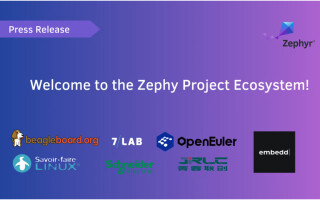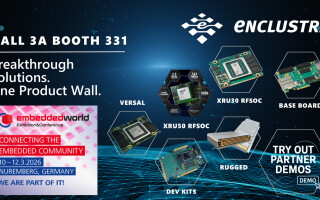Dialog Semiconductor provides preferred power solution for Renesas? automotive SoCs
April 26, 2017

Dialog's power management IC (PMIC) chipset available for use in Renesas' R-Car H3 automotive computing platform
London, United Kingdom – Dialog Semiconductor plc (XETRA:DLG), a provider of highly integrated power management, AC/DC power conversion, charging, and Bluetooth® low energy technology, today announced its power management IC chipset for the R-Car H3 automotive computing platform for driving support systems and in-vehicle infotainment systems. The power management chipset comprises the DA9063-A system PMIC and two sub PMICS, the DA9213-A and DA9214-A.
Dialog’s unique partitioning into system and sub PMICs, offers the advantages of scalability and flexibility while distributing the power dissipation in adverse temperature environments. The R-Car H3 platform will benefit from this flexibility because different SoC implementations require different combinations of system and sub PMICs, depending on the end application. The combination of the two companies’ technologies furthers their collaboration, as Dialog is currently one of the preferred power solution providers in Renesas’ second-generation R-Car H2 platform, the industry-leading high performing SoC for automotive infotainment systems. The R-Car H3’s release realizes powerful automotive computing performance which now exceeds that of the predecessor R-Car H2 SoC.
“We have a track record of innovation in developing differentiated energy-saving power management solutions,” said Paul Wheeler, Vice President Mobile Systems, Dialog Semiconductor. “These solutions are critical for leading technology partners such as Renesas to stay ahead of the competition, as the continued convergence of mobile technologies like smartphones, tablets, and wearables with vehicles, drives the increase in processing requirements for infotainment, navigation and always-on connectivity applications.”
The ability of Dialog’s PMICs to distribute power dissipation in adverse temperature environments is a key benefit to module makers. As the available area behind the infotainment module’s LCD screen becomes increasingly constrained, heat dissipation has become a critical factor when adding functionality.
“With the newest generation of cars hitting the roads, demands for next-generation infotainment systems, connected car platforms and autonomous driving are on the rise,” said Masayasu Yoshida, Senior Director of 1st Solution Business Unit, Renesas Electronics Corporation. “The combination of the R-Car H3 SoC and Dialog’s power solutions improves power efficiency on automotive information systems, and provides flexibility for our end-customers to easily make configuration and sequencing changes to match their individual needs.”
Dialog’s scalable, flexible, and small-footprint solution, comprising the DA9063-A system PMIC, together with the DA9213-A and DA9214-A sub PMICs, delivers 14 percent lower power dissipation when compared to competing PMICs. That reduction combined with the multi-rail support, in-system reprogrammable power sequencing offered via the complementary SmartCanvas™ GUI, dynamic voltage scaling, and over-temp and over-voltage shut down, allows optimum flexibility in a market leading power solution.
Learn more about Dialog’s SoC power solutions for Renesas processors here: www.dialog-semiconductor.com/power-solutions-re[...].






